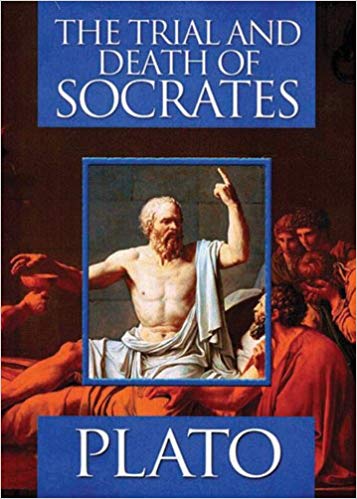|
The Trial and Death of Socrates
by Plato Published between 399 BC and 348 BC 128 Pages Thibault’s Score: 4/5 The Trial and Death of Socrates is a collection of dialogs allegedly written by Plato recounting the moments before Socrates trial, the key points Socrates made during his trial, the encounters he had with his followers in prison while awaiting his execution, and his final philosophical thoughts, hours before his death. Like nearly all ancient texts, it appears to have been altered over time, and written by many authors. The writing style changes abruptly. Some sections are written like a play, with the names of the speakers followed by their dialogs. Other sections are written with third person narrative accounts. Yet other sections are out of context quotes from Socrates. Many modern historians believe that Plato and Socrates are fictional characters, and the events described should not be taken literally. Instead of reading this text as a historical narrative, it is more important to understand the greater truths being presented by Plato and Socrates. The arguments made by Socrates and his opponents are timeless and universally applicable. They deeply explore the questions of freedom of speech, mortality, and the obligations one has with his community. Socrates, despite being an old and haggard man, displays an incredible amount of heroism. He boldly stares down his accusers, and refuses to back down to save his own life. Instead, he chooses to defend reason with his own life. When his dedicated disciples concoct a plan to bribe the guards and sneak him out of prison, he refuses, and argues that remaining in good standing with the law is the morally correct and reputable thing to do. I really enjoyed reading the Trial and Death of Socrates, and left feeling both culturally enriched and inspired by Socrate’s humble act of bravery.
0 Comments
Leave a Reply. |
Thibault SerletMost of my articles are book reviews, but I also write about many other topics. Archives
December 2023
Categories |

 RSS Feed
RSS Feed